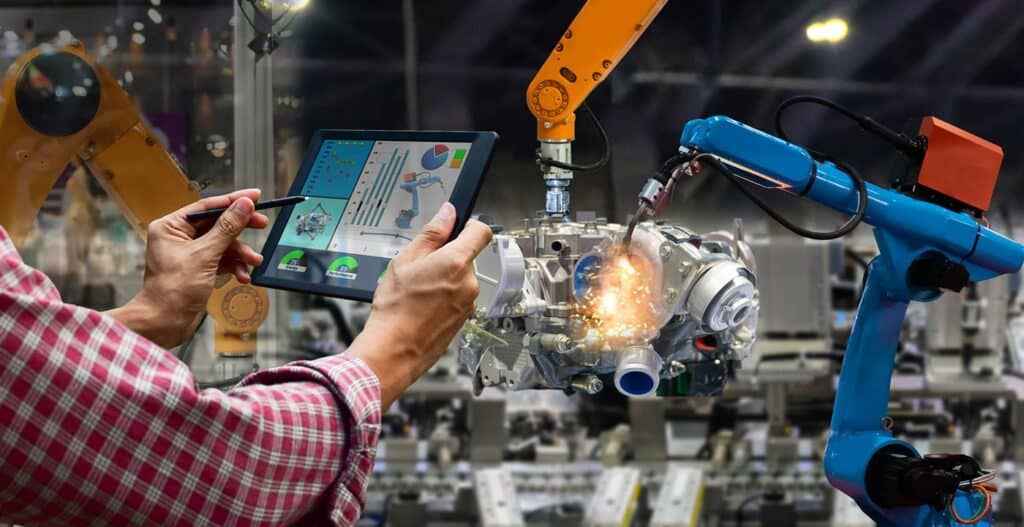Technology integration in production

In the rapidly evolving industrial landscape, the fusion of traditional manufacturing processes with cutting-edge technological advancements is reshaping the production paradigm. This integration has become a cornerstone for companies aiming to stay competitive and innovative.
This blog post delves into the myriad ways technology is woven into the fabric of production lines, transforming operational efficiency, product quality, and market responsiveness.
The Dawn of a New Industrial Era
The integration of technology in manufacturing, often referred to as the Fourth Industrial Revolution or Industry 4.0, marks the beginning of a new era. This revolution is characterized by a symbiotic relationship between physical production and digital technology, fostering a landscape of constant innovation and improvement.
From the Internet of Things (IoT) and robotics to artificial intelligence (AI) and machine learning, these technological marvels are not just augmenting human capabilities but are also paving the way for unprecedented levels of productivity and efficiency.
One glaring example of this integration is the use of AI in predictive maintenance, where machine learning algorithms can predict equipment failures before they occur, thereby significantly reducing downtime and maintenance costs.
Enhancing Efficiency and Flexibility
The agility afforded by advanced technology is a game-changer in production processes. Automation and robotics have revolutionized the speed and reliability of production lines, allowing for the rapid assembly of products with minimal human intervention.
Moreover, the advent of 3D printing technology has opened up new possibilities for customization and flexibility in production. This technology allows manufacturers to produce complex and customized products on-demand, reducing waste and inventory costs.
Improving Quality and Customer Satisfaction
Quality assurance is another area that benefits immensely from technology integration. Advanced imaging and sensing technologies enable real-time monitoring and quality control during the production process, ensuring that products meet stringent quality standards.
This meticulous attention to quality not only bolsters the brand's reputation but also heightens customer satisfaction by delivering products that consistently meet or exceed expectations.
Data-Driven Decision Making
The proliferation of sensors and connected devices on production floors has led to an explosion of data, encapsulating every aspect of the production process. This wealth of information, when analyzed and leveraged correctly, has the potential to unlock insights that can drive smarter, more informed decision-making.
By harnessing this data through advanced analytics and AI, businesses can optimize their production processes, reduce waste, and react more swiftly to market changes and consumer demands.
Challenges and Considerations
While the benefits of technology integration are manifold, companies face several challenges in its implementation. These range from the initial cost of adoption and the need for skilled personnel to manage these technologies, to concerns about data security and privacy.
Moreover, there's an ongoing need for businesses to stay abreast of technological advancements and continually adapt their operations to leverage these innovations effectively.
The Future Is Now
The integration of technology into production is not just a trend but a fundamental shift in how products are conceptualized, manufactured, and delivered. It signifies a move towards smarter, more sustainable manufacturing practices that align with the evolving digital world.
In conclusion, the seamless amalgamation of technology with traditional manufacturing practices is revolutionizing production lines across the globe. As businesses continue to embrace and integrate these technological advancements, they pave the way for an era of efficiency, quality, and innovation in manufacturing. The future of production is here, and it is inherently digital.

Related